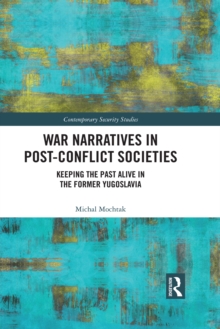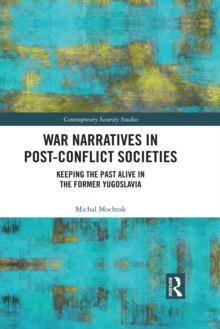
Drones and Global Order : Implications of Remote Warfare for International Society EPUB
Edited by Paul Lushenko, Srinjoy Bose, William Maley
Part of the Contemporary Security Studies series
EPUB
Description
This book explores the implications of drone warfare for the legitimacy of global order.
The literature on drone warfare has evolved from studying the proliferation of drones, to measuring their effectiveness, to exploring their legal, moral, and ethical impacts. These "three waves" of scholarship do not, however, address the implications of drone warfare for global order. This book fills the gap by contributing to a "fourth wave" of literature concerned with the trade-offs imposed by drone warfare for global order. The book draws on the "English School" of International Relations Theory, which is premised on the existence of a society of states bounded by common norms, values, and institutions, to argue that drone warfare imposes contradictions on the structural and normative pillars of global order. These consist of the structure of international society and diffusion of military capabilities, as well as the sovereign equality of states and laws of armed conflict. The book presents a typology of contradictions imposed by drone warfare within and across these axes that threaten the legitimacy of global order. This framework also suggests a confounding consequence of drone warfare that scholars have not hitherto explored rigorously: drone warfare can sometimes strengthen global order. The volume concludes by proposing a research agenda to reconcile the complex and often counter-intuitive impacts of drone warfare for global order.
This book will be of considerable interest to students of security studies, global governance, and International Relations.
Information
-
Download - Immediately Available
- Format:EPUB
- Pages:286 pages
- Publisher:Taylor & Francis
- Publication Date:28/12/2021
- Category:
- ISBN:9781000528800
Information
-
Download - Immediately Available
- Format:EPUB
- Pages:286 pages
- Publisher:Taylor & Francis
- Publication Date:28/12/2021
- Category:
- ISBN:9781000528800










